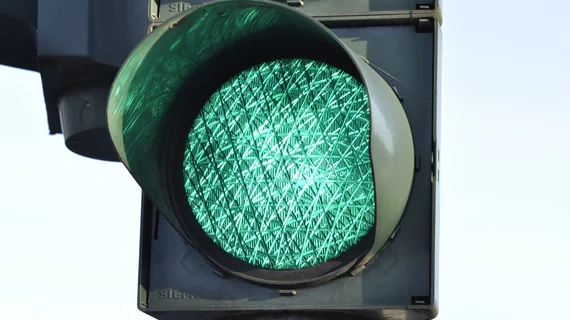RadNet subsidiary gets green light for breast density AI
The FDA has cleared software that automatically assesses density of breast tissue on mammography.
Los Angeles-based RadNet announced the approval Dec. 19, saying its 2020 AI acquisition DeepHealth of Cambridge, Mass., earned the go-ahead for a product that supplies breast radiologists with ACR BI-RADS breast density classification.
Called Saige-Density, the offering is the third DeepHealth AI package to gain FDA clearance in less than two years, the announcement notes.
It was preceded in the U.S. market by a productivity worklist, triage and prioritization tool called Saige-Q and one for breast cancer screening called Saige-Dx.
RadNet points out that around 50% of U.S. women over 40 have dense breast tissue. The trait can obscure cancers in screening mammograms and often leads to longer interpretation times or additional imaging.
Saige-Density helps the reading radiologist quickly assign density scores “with improved accuracy and consistency, which can play an important role in the earlier identification of cancer,” the company says.
DeepHealth CEO and co-founder Gregory Sorensen, MD, says this latest FDA approval “highlights our aggressive commitment to bringing state-of-the-art AI innovation to the breast screening mammography market. … Our team continues to build on that foundation, and we intend to further innovate and commercialize products that leverage the tremendous advantages of being part of RadNet.”
Last month publicly traded RadNet secured a controlling portion of Heart & Lung Health, a network of more than 70 cardiothoracic radiologists who serve the National Health Service as well as various hospitals and teaching institutions across the United Kingdom.
RadNet operates around 350 sites in the U.S. and trades on the NASDAQ exchange under the ticker symbol “RDNT.”
Full announcement here.

